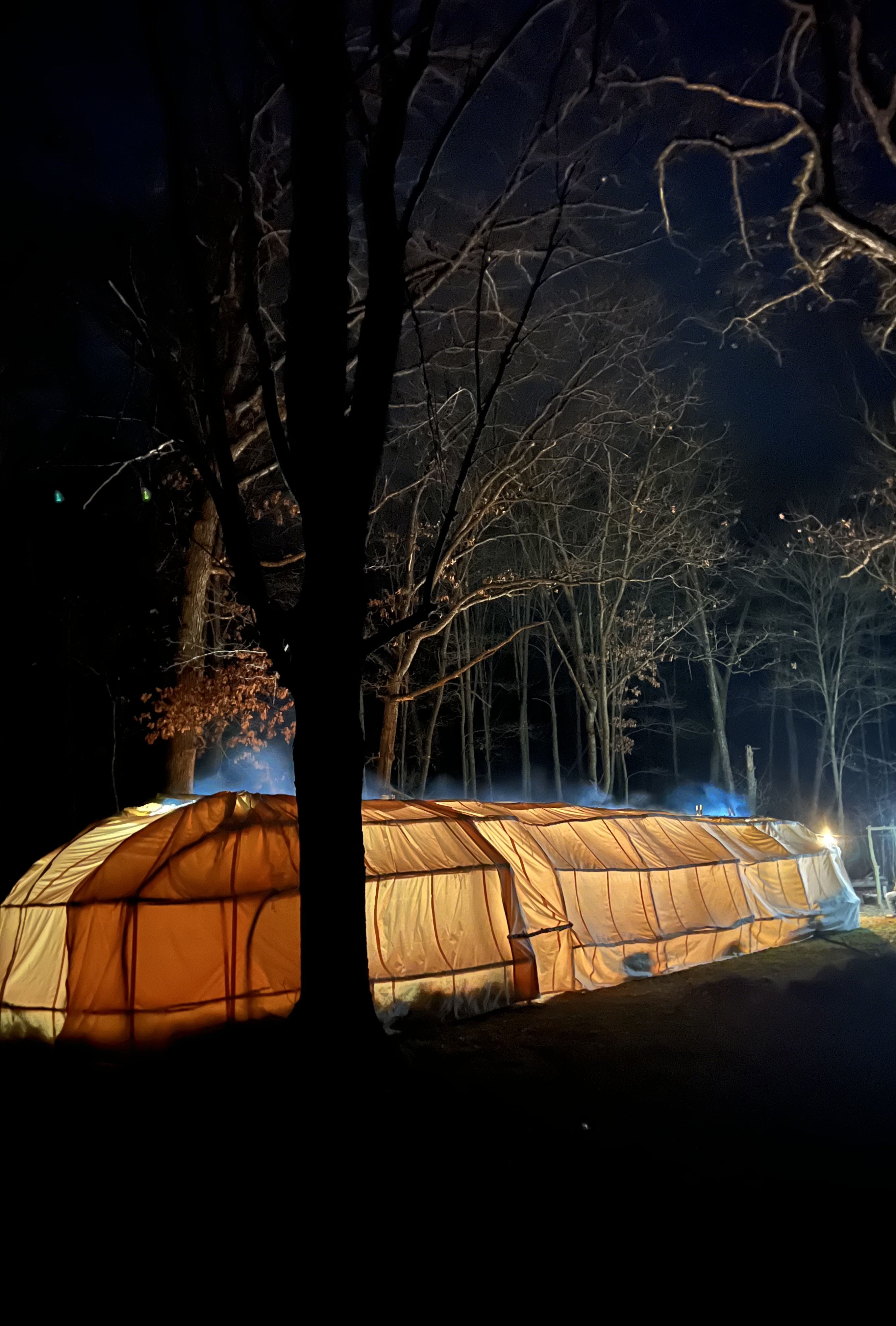
- Details
- By Kaili Berg
For generations, Wisconsin’s Native American children were shipped to one of eleven boarding schools in the state where children were not allowed to speak Ho-Chunk, the root language of what is now one of the 11 federally recognized tribes in the state.
Language is at the core of what it means to be Ho-Chunk. With fewer than 30 first-language speakers left, Ho-Chunk is now considered an endangered language.
The passage of the Native American Language Act in 1990 repudiated past government policies of eradicating Indigenous languages, but by then, the damage was done.
“I am worried about our Ho-Chunk way of life dying out from under us,” Greendeer told Native News Online while walking around his family’s 150-year-old homestead.
Greendeer hosts Ho-Chunk language feast classes, one of several efforts to save the language and culture of the tribe. Greendeer has put together different teachings intertwined with Ho-Chunk, English, and phonetic Ho-Chunk words and phrases spoken in traditional ceremonies.
Greendeers hopes these classes will encourage people within the Ho-Chunk Nation to learn more about their culture and language to pass to future generations.
“I started something that is different from your traditional language classes,” Greendeer said. “I am trying to empower other people so they can pass our culture on because there’s only a few that still go to our feast ceremonies and the ones that do go, some do not know what is being said. This is what makes us Ho-Chunk, to keep our traditions going.”
Indigenous ceremonies seek to strengthen a person’s connection to the physical and spiritual world, providing healing or clarity, marking significant life moments, or offering remembrance and gratitude. Each ceremony has a specific purpose and has an important place in Native history.
“A medicine man came to my homestead and talked with me,” Greendeer said. “He said he was tired of people being on their phones and having side conversations while he was talking. It’s really frustrating for him.”
After the conversation, Greendeer went home and fasted so he could find answers. A late medicine man came to him in a dream and inspired him to start his classes. Students who have attended the class say they are now able to understand what is being said with the help of Greendeer.
“I just don’t want it to die in front of me,” Greendeer said. “My father and mother were both very traditional, and they always took me to feast. Eventually, I realized that this is what makes me Ho-Chunk.”
Among other efforts, the Ho-Chunk Language Division started the Hoocak Academy to provide language learning materials, resources and instructional learning for the community. Classes are available in person and online.
In addition, the Nation is also in the process of its second phase of the language preservation process, following the construction of a large-scale online dictionary, including audio recordings of speakers. The recordings are part of a decades-long effort to develop learning materials to sustain the language.
“Learning the language and our traditions is very important,” Greendeer said. “We need more people to start wanting to learn. It’s like we have the cure for cancer and people are uninterested in it. This is our way of life, we need to save it.”
More Stories Like This
50 Years of Self-Determination: How a Landmark Act Empowered Tribal Sovereignty and Transformed Federal-Tribal RelationsTlingit Haida Tribal Business Corporation Clarifies Federal Contracting Work
Homeland Tour Offers Deeper Understanding, Appreciation of Chickasaw Roots
Klamath Tribes Seek to Reverse Judge’s Removal in Water Rights Case
Tunica-Biloxi Chairman Pierite Elected President as Tribal Nations Unite Behind New Economic Alliance
Help us defend tribal sovereignty.
At Native News Online, our mission is rooted in telling the stories that strengthen sovereignty and uplift Indigenous voices — not just at year’s end, but every single day.
Because of your generosity last year, we were able to keep our reporters on the ground in tribal communities, at national gatherings and in the halls of Congress — covering the issues that matter most to Indian Country: sovereignty, culture, education, health and economic opportunity.
That support sustained us through a tough year in 2025. Now, as we look to the year ahead, we need your help right now to ensure warrior journalism remains strong — reporting that defends tribal sovereignty, amplifies Native truth, and holds power accountable.
 The stakes couldn't be higher. Your support keeps Native voices heard, Native stories told and Native sovereignty defended.
The stakes couldn't be higher. Your support keeps Native voices heard, Native stories told and Native sovereignty defended.
Stand with Warrior Journalism today.
Levi Rickert (Potawatomi), Editor & Publisher

